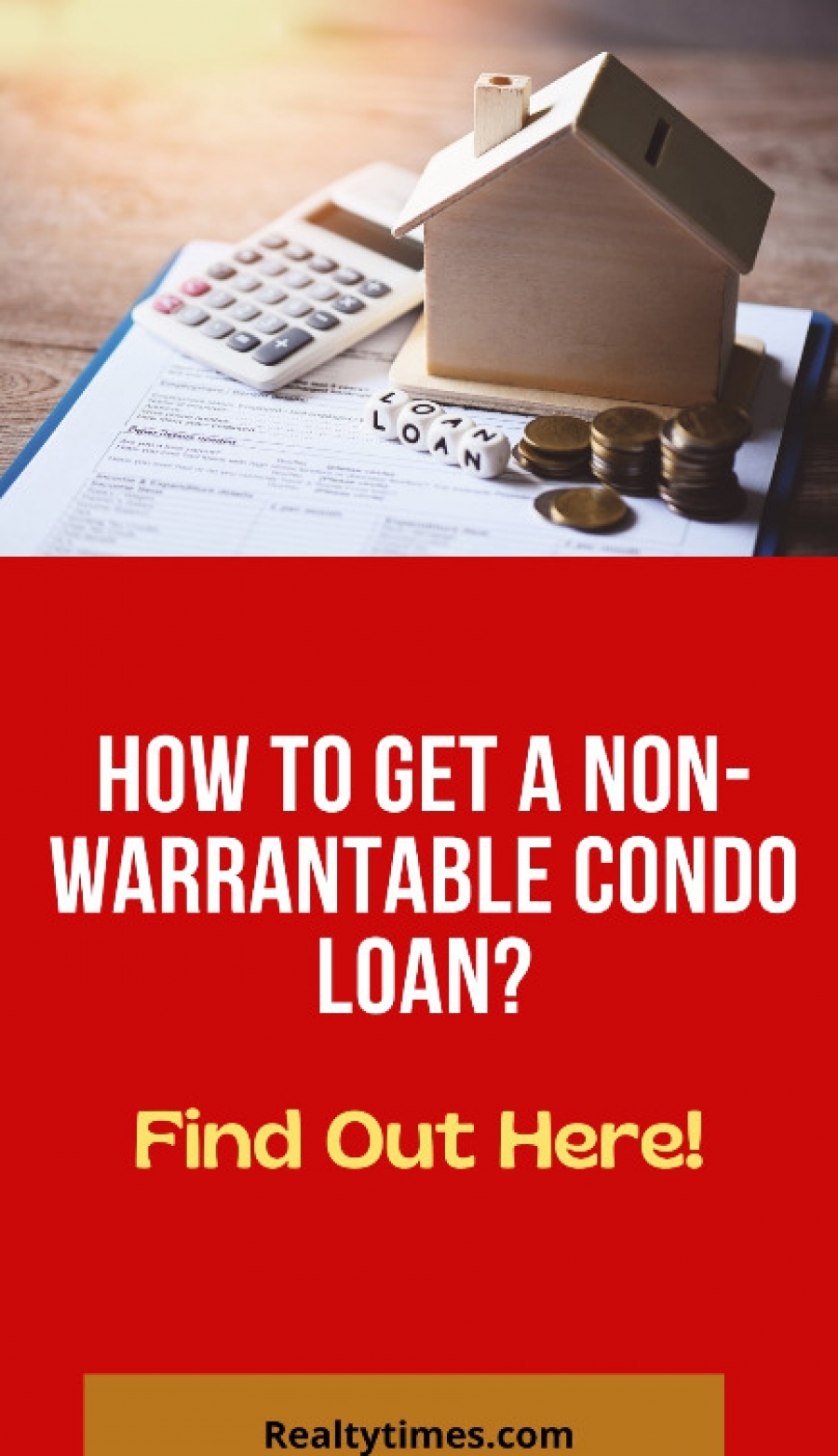Tips For Getting Non-Warrantable Condo Loans
Non-warrantable condo loans can be challenging to obtain due to their non-compliance with Fannie Mae and Freddie Mac guidelines. These condos may have various reasons for being deemed non-warrantable, such as construction projects, high non-owner occupancy, or legal issues.
However, some lenders offer portfolio loans specifically designed for these properties. Working with experienced professionals, such as specialized lenders and real estate agents, is crucial in securing a non-warrantable condo loan.
Thorough research and understanding of property requirements are essential before applying for financing. In my experience as a Realtor for the past three decades, many consumers and agents do not know what an unwarrantable condo is. You're about to find out!
Understanding Non-Warrantable Condos
We will delve into the concept of non-warrantable condos, exploring what they are, their characteristics, and their associated risks and challenges. There are many things to know when buying a condo, and this is one of them.
What is a Non-Warrantable Condo?
A non-warrantable condo refers to a condominium that does not meet the guidelines set by Fannie Mae and Freddie Mac. These condos typically do not fit the standard criteria due to various factors such as unfinished construction projects, high non-owner occupancy, or legal issues.
Unlike warrantable condos, non-warrantable condos present a greater risk to lenders.
Characteristics of Non-Warrantable Condos
Non-warrantable condos can exhibit distinctive characteristics that distinguish them from their warrantable counterparts. These may include incomplete or ongoing construction, a significant percentage of units owned by one entity or individual, the allowance of short-term rentals, or ongoing legal disputes.
Understanding these unique aspects is essential when considering financing options for non-warrantable condos.
Risks and Challenges of Non-Warrantable Condos
Financing non-warrantable condos can be more challenging due to the higher risk involved. Lenders often require additional documentation and impose stricter eligibility criteria for borrowers.
The resale potential of non-warrantable condos may also be limited, causing potential difficulties in the future. Additionally, litigation or legal issues can further complicate the loan process and impact the property's value.
Qualifications and Requirements for Non-Warrantable Condo Loans
When it comes to obtaining a loan for a non-warrantable condo, there are specific qualifications and requirements that both lenders and borrowers must meet.
Additionally, the property and its homeowners' association (HOA) guidelines need to be considered.
Let's explore these factors in more detail:
Lender Criteria for Non-Warrantable Condo Financing
To secure financing for a non-warrantable condo, lenders have their criteria to evaluate the property's eligibility. These criteria can vary from lender to lender, but common factors they consider include:
- Financial stability of the borrower
- Collateral coverage and loan-to-value ratio
- Property condition and market demand
- Reserve funds in the HOA
- Insurance requirements
- Legal and litigation matters
Borrower Eligibility for Non-Warrantable Condo Loans
As a borrower, meeting specific eligibility requirements is crucial to qualify for a non-warrantable condo loan. Some key factors lenders typically assess include:
- Credit score and history
- Income stability and debt-to-income ratio
- Employment history
- Financial reserves and down payment
- Personal bankruptcy or foreclosure history
Property and HOA Guidelines for Non-Warrantable Condos
Non-warrantable condos often have specific guidelines set by the property's HOA. These guidelines can impact the loan qualification process and may cover aspects such as:
- Owner occupancy requirements
- Restrictions on rental and leasing
- Financial health and governance of the HOA
- Reserve funds and special assessments
- Property maintenance standards
It is essential for both borrowers and lenders to carefully review these guidelines and ensure they align with the loan requirements.
Exploring Financing Options for Non-Warrantable Condos
When securing financing for non-warrantable condos, there are several options to consider. Exploring these options thoroughly is vital to find the best fit for your needs.
Portfolio Loans for Non-Warrantable Condo Financing
One option to explore is portfolio loans designed explicitly for non-warrantable condos. Smaller banks or credit unions typically offer these loans that keep them in their portfolios rather than selling them to Fannie Mae or Freddie Mac.
Portfolio loans have more flexible guidelines and may be more willing to take on the higher risks associated with non-warrantable condos.
Alternative Lenders and Specialized Programs
In addition to portfolio loans, some alternative lenders finance non-warrantable condos. These lenders understand the unique challenges and risks and have developed specialized programs to cater to borrowers needing such financing.
It's worth exploring these lenders and the programs they offer to find a solution that fits your situation.
Loan Terms and Options for Non-Warrantable Condos
Regarding loan terms and options for non-warrantable condos, there can be variations compared to traditional loans. Some lenders may offer adjustable rate mortgages (ARMs) with introductory fixed rates for a certain period before adjusting.
Others may provide fixed-rate loans at a slightly higher interest rate due to the increased risks associated with non-warrantable condos.
It's important to carefully review and compare the terms and options available to ensure they align with your financial goals and circumstances.
Navigating the Process of Obtaining a Non-Warrantable Condo Loan
There are several vital steps to navigate when getting a non-warrantable condo loan. Working with knowledgeable professionals and following the proper process can help simplify loan acquisition.
Here are some key aspects to consider:
Working with a Knowledgeable Real Estate Agent
One crucial step in securing a non-warrantable condo loan involves working with a knowledgeable real estate agent with experience dealing with these properties.
Such an agent will be familiar with the requirements and challenges associated with non-warrantable condos and can provide valuable guidance throughout the process. They can help you identify suitable properties and guide you through the due diligence phase.
Your real estate agent should be asking questions upfront to ensure warrantability.
Finding the Right Lender for Non-Warrantable Condos
Not all lenders are willing to provide financing for unwarrantable condos, so it's essential to find the right lender specializing in these loans. Conduct thorough research and seek recommendations from real estate professionals or other homeowners who have obtained financing for non-warrantable condos.
Look for lenders with experience dealing with such properties and understand their unique requirements and risks.
Steps to Secure a Non-Warrantable Condo Loan
Securing a non-warrantable condo loan involves several steps to ensure a smooth process:
- Gather all necessary financial documentation, such as income verification, tax returns, and bank statements, to demonstrate your eligibility for the loan.
- Submit a loan application to the lender, providing all required information and supporting documents.
- Work closely with the lender to fulfill any additional requirements or requests for information.
- Undergo the loan underwriting process, where the lender assesses your qualifications and the property's eligibility.
- If approved, finalize the loan terms, including the interest rate, loan amount, and repayment period.
- Complete the closing process, which involves signing the necessary legal documents and transferring ownership of the property.
By following these steps and working closely with professionals specializing in non-warrantable condo loans, you can increase your chances of successfully obtaining the financing you need for your desired property.
Important Considerations and Tips for Non-Warrantable Condo Loans
When seeking financing for non-warrantable condo loans, it's crucial to consider various essential factors to ensure a smooth process and reduce potential risks. Here are some key considerations and valuable tips to keep in mind:
Conducting Thorough Due Diligence on the Property
Conducting thorough due diligence on the property before proceeding with a non-warrantable condo loan is essential. This includes obtaining all available documentation, such as financial statements, HOA bylaws, and any pending litigation or legal issues.
Hiring a professional inspector to assess the physical condition of the condo is also recommended. This diligent research will comprehensively understand the property's status and potential challenges.
One of a buyer's agent's responsibilities is to help with the due diligence process.
Understanding the Financial Implications and Risks
Obtaining a non-warrantable condo loan comes with financial implications and risks that borrowers must fully comprehend. These loans often have higher interest rates and stricter eligibility criteria and may require larger down payments.
Additionally, borrowers should carefully consider the potential impact on their financial situation, such as the ability to afford mortgage payments and possible changes in property value. Evaluating these financial aspects beforehand can help borrowers make informed decisions.
Seeking Professional Guidance and Expertise
Given the complexity of non-warrantable condo loans, it is highly advisable to seek professional guidance from experienced mortgage brokers, real estate attorneys, and loan officers who specialize in these types of financing.
These professionals can provide valuable insights, navigate the loan process, and suggest appropriate lenders that offer financing options tailored for non-warrantable condos. Their expertise will help borrowers make well-informed decisions and simplify the overall process.
Addressing Potential Legal and Litigation Issues
One common challenge with non-warrantable condos is the presence of legal and litigation issues. It's crucial to address these concerns before acquiring financing.
Engaging the services of a competent real estate attorney can help identify any existing or potential legal challenges related to the property. Understanding the extent of these issues is essential to determine the viability of obtaining a non-warrantable condo loan.
By considering these critical factors and following these tips, borrowers can navigate the complexities of non-warrantable condo loans more effectively. Working with professionals and conducting thorough research will minimize risks and increase the chances of securing financing for a non-warrantable condo.
When purchasing a condo, having a team of real estate professionals in your corner is always worthwhile. Best of luck!






